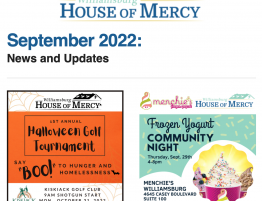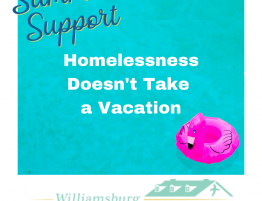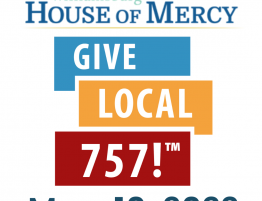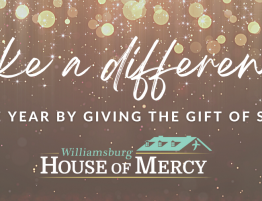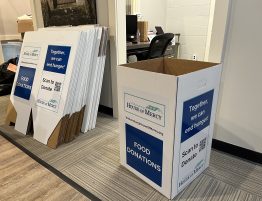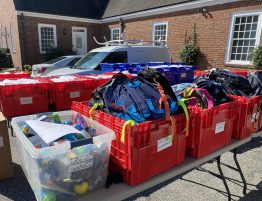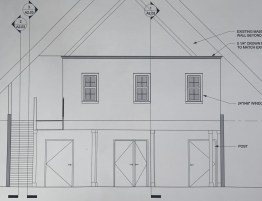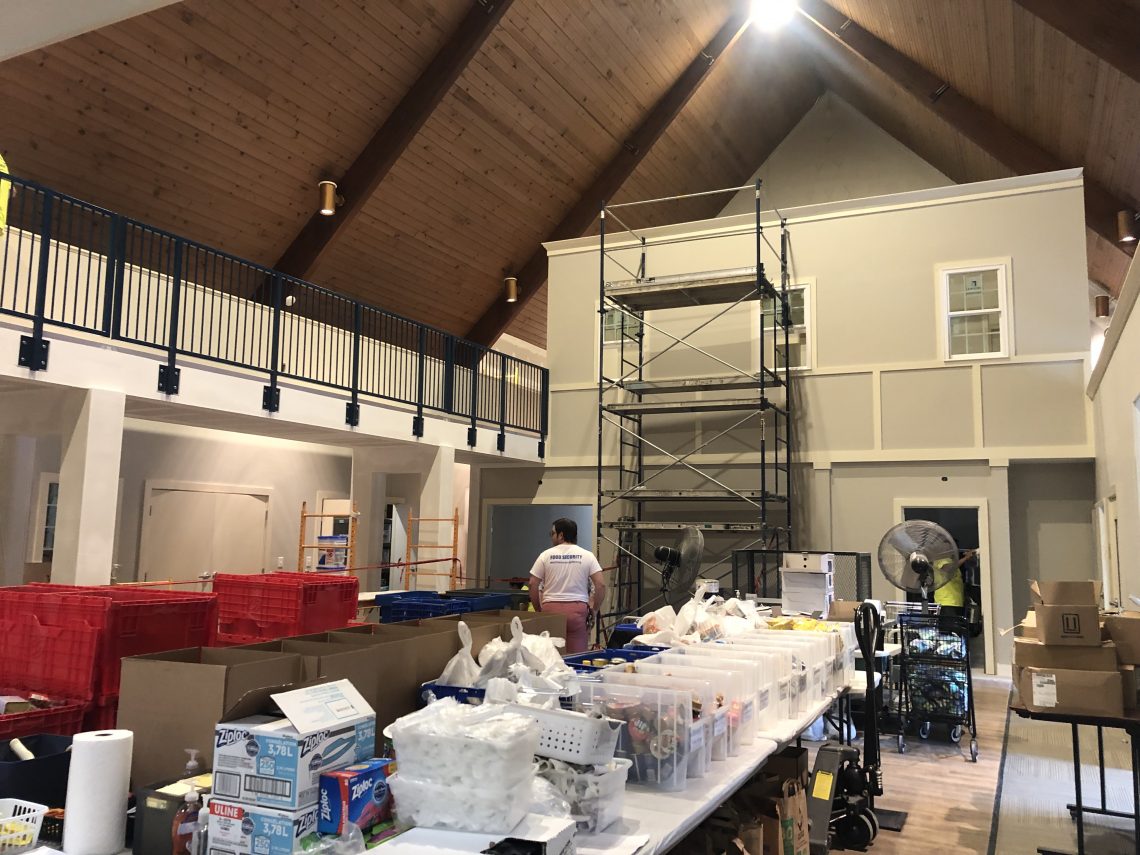
This month has been a whirlwind of growth and activity as we wrap up our fiscal year! We are so grateful for your continued support, especially when our Mercy Housing programs face daily challenges. While life looks more “normal,” we have noticed a few alarming trends.
1. Homelessness is increasing.
We are seeing more families and individuals facing first time homelessness every day. Many families and individuals reported that their first indication that unemployment benefits were expiring was when their benefits ceased. Many of our neighbors in need use motels as shelter, but no longer had funds to cover their weekly rates. Suddenly, their short-term plans included sleeping outdoors, in vehicles, or in other places not meant for human habitation. As school programs, camps, and many day care programs are either still closed or operating at a limited capacity, working mothers in particular face unique struggles.
2.Scores of families are facing eviction.
The moving goalposts of continued eviction moratoriums have been demotivating for encouraging families and individuals to secure more affordable units—many of whom were in crisis pre-pandemic and a year later find themselves in an unfathomable well of debt. Governor Northam signed the Rent and Mortgage Relief Program (RMRP) into law in July 2020. The program was designed to support and ensure housing stability across the Commonwealth during the coronavirus pandemic. For landlords and tenants that qualify, financial assistance is available for rent or mortgage payments past due beginning April 1, 2020. Applicants must demonstrate a “COVID-related loss of income”, and relief does not assist with rent arrearages pre-pandemic. The pre-pandemic unemployed and underemployed did not qualify for relief though their balances continued to grow and evictions were halted. Even those who qualified and may have received assistance last year, do not qualify for additional assistance even if their instability persisted into this year. Pre-pandemic, homelessness prevention assistance was predominantly provided by local nonprofits like Williamsburg House of Mercy and its partners. We are gearing up for a bumpy road before the system comes back into balance. Funding will be vital to helping families to stabilize even if it means assisting them into a new unit.
3. Case management is more important than ever.
Right now, professional and intentional case management is more important than ever. Our case managers build relationships and are trained to help individuals and families move beyond the crisis of homelessness and toward permanent, stable housing immediately. Our goal is to rapidly rehouse those experiencing literal homelessness within 30-45 days of first contact; put in place missing mainstream services and community supports; and partner with the client on developing a Housing Stabilization Plan that we both agree to. Through frequent meetings, home visits, life-skills training, and check-ins, people are guided to move beyond crisis-mode and develop long-term problem solving strategies so that every future misstep doesn’t result in a return to homelessness. From housing navigation and responsible tenancy to budget counseling and job assistance—all supports are designed to instill in the individual a sense of pride in self-reliance. This is a big part of our Mercy Housing strategy and why we have such high success rates in keeping people stably housed beyond 12 months.
We see these trends and are actively taking steps to keep families on a path of stabilization and financial independence. This month, we welcomed an additional case manager, Aundrea Holiday, to our team as a Family Services Housing Based Case Manager. Aundrea will specialize in working with families experiencing homelessness, and will be the program manager for our 8 bed, Grace Haven Family Shelter. The final phase of our Mercy Housing office expansion is well underway and donations to our “Going the Distance” campaign have picked up momentum. We are continuing to meet with community leaders to brainstorm Williamsburg’s commitment to end homelessness and find creative solutions.
Williamsburg House of Mercy Food Project:
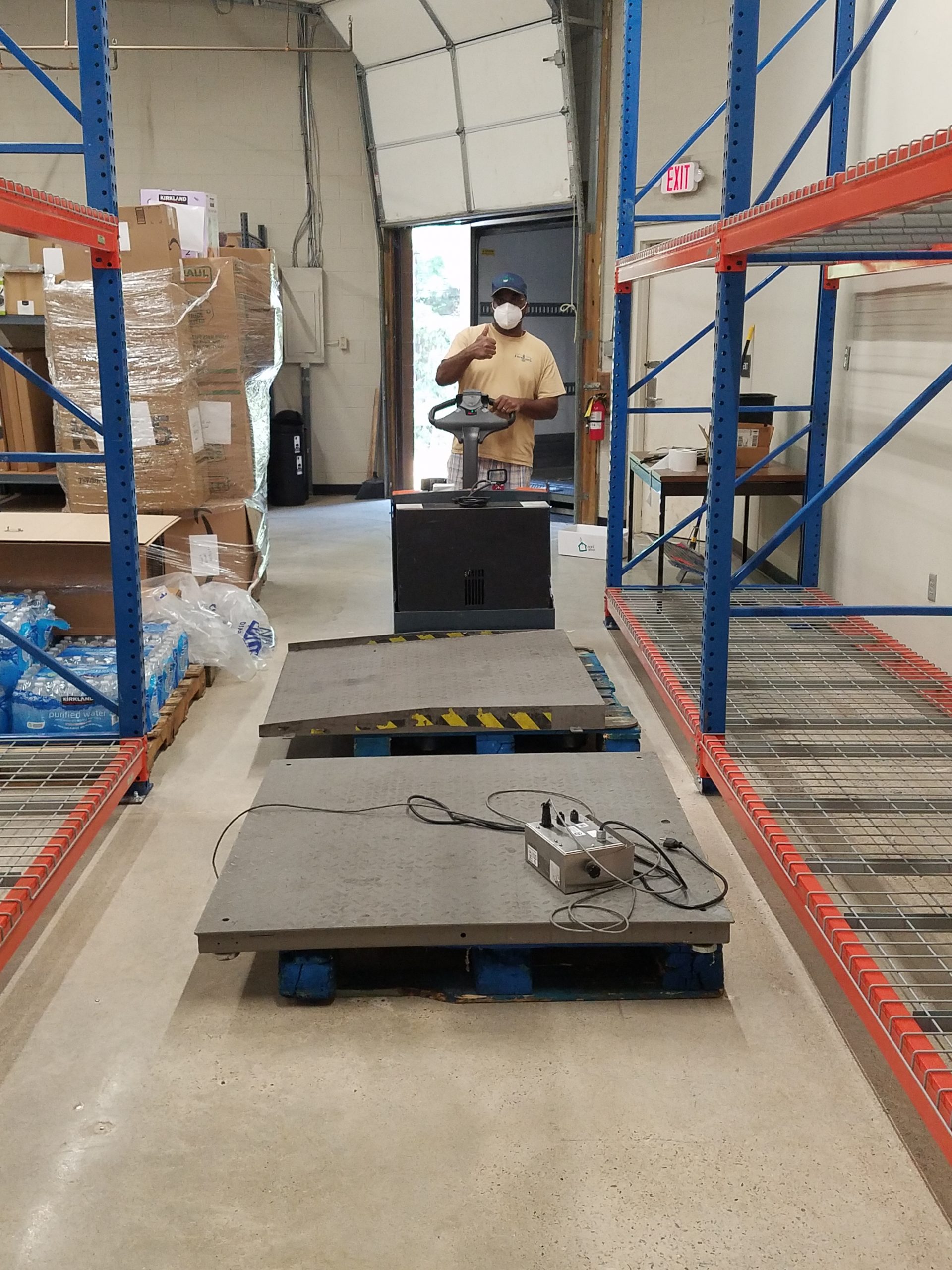 All the while, our Williamsburg House of Mercy Food Project warehouse is coming together with support from the Virginia Peninsula Foodbank, Williamsburg Health Foundation, the James City Rotary, and other partners. With more fresh food available, we will be able to help our Mercy Housing families free up their budget to keep the roof over their heads and make better nutritional choices for long-term health. Our goal is for this Food Project to be a regional community resource for both fresh and shelf-stable food. Not only will this continue to supply the food distribution efforts at House of Mercy, it will also be available for pick-up by faith groups and community organizations in our region that might not have space or capacity for a fully stocked pantry, but want to be a resource to their neighbors. As a Super Agency of the Virginia Peninsula Food Bank, Williamsburg House of Mercy will provide an upper Peninsula bridge to food security for communities with limited resources. And, THANK YOU to the Virginia Peninsula Foodbank for gifting us their floor scale!
All the while, our Williamsburg House of Mercy Food Project warehouse is coming together with support from the Virginia Peninsula Foodbank, Williamsburg Health Foundation, the James City Rotary, and other partners. With more fresh food available, we will be able to help our Mercy Housing families free up their budget to keep the roof over their heads and make better nutritional choices for long-term health. Our goal is for this Food Project to be a regional community resource for both fresh and shelf-stable food. Not only will this continue to supply the food distribution efforts at House of Mercy, it will also be available for pick-up by faith groups and community organizations in our region that might not have space or capacity for a fully stocked pantry, but want to be a resource to their neighbors. As a Super Agency of the Virginia Peninsula Food Bank, Williamsburg House of Mercy will provide an upper Peninsula bridge to food security for communities with limited resources. And, THANK YOU to the Virginia Peninsula Foodbank for gifting us their floor scale!
Thank you, again, for your support. These are big expansions, but carefully planned and necessary for the sake of our neighbors in need.
To donate directly, visit our donation page and select “Building Fund” or mail checks written to Williamsburg House of Mercy to 10 Harrison Avenue, Williamsburg, VA 23185.

